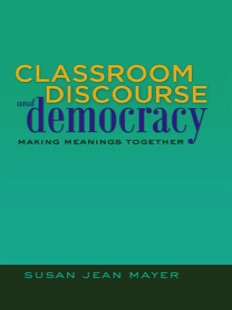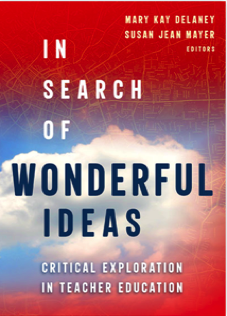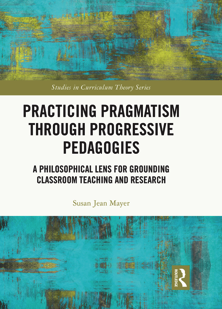

Susan Jean Mayer
Theorizing the aims and character of distinctively democratic classrooom practices based upon
the philosophy of pragmatism and contemporary understandings of learning and development
Teachers College Press 2021
Demonstrates the value of a listening-based pedagogy for nurturing a democracy of ideas and advancing assets-based practices within teacher education programs
Routledge 2024
Distills the philosophical grounds for integrating dialogic and materially grounded learning experiences within all democratic classrooms
CRITICAL EXPLORATION IN THE CLASSROOM
My research focuses on the roles students and teachers assume in the construction of classroom understandings. All young people within democratic societies need to grow familiar and comfortable with principled, transparent, and collaborative knowledge construction processes and to experience the thrill and challenge of exploring primary source materials and thinking for themselves.
A curricular approach called Critical Exploration in the Classroom, designed to empower students in just these ways, has therefore featured centrally in my work, as have the members of a community of practice associated with this and related classroom practices.
Peter Lang 2012
Employs both structural and narrative lenses in order to characterize distinctively democratic classroom discourse practices in practical terms
As we have learned, democratic social and political orders do not sustain themselves. People have to want to sustain them, and they need to know how. Historically, educational policy makers have sought to address the challenges and possibilities of educating for democracy, providing space and resouces for the aligned work of practitioners in schools. For the past four or so decades, though, the project of educating for democracy has been sidelined in favor of the project of raising test scores.
Although well-meaning people have permitted, and some have also supported, this extreme diminishment of pedagogical purpose, we must now acknowledge the disturbing deterioration of intellectual vitality and collective spirit to which it has led. As many educational practitioners, theorists, and philosophers have long argued, public schools offer democracies their best chance to apprentice young people into democratic values and practices. With my work, I have sought to advance this argument and to characterize its practical implications.

